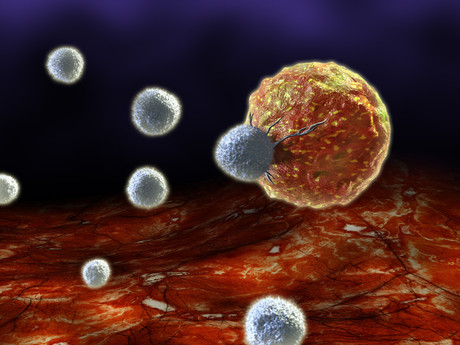Personalised cancer vaccine underway at UQ

University of Queensland (UQ) researchers have developed a vaccine delivery technology that enables treatment to be tailored for different cancers — a breakthrough that has the potential to improve the precision of cancer immunotherapy.
As explained by Professor Ranjeny Thomas, “Current cancer vaccines have limited flexibility and effectiveness.” Flexible cancer vaccines are thus a long-sought treatment strategy in cancer immunotherapy, he said.
“Cancer vaccines represent a precision cancer treatment strategy which stimulates the immune system to attack cancer cells without affecting other cells in the body,” Professor Thomas explained.
“While a new class of immunotherapy drugs, called checkpoint inhibitors, has promising results in previously untreatable cancers, they are only effective in a limited proportion of cases and may have inflammatory side effects.”
The solution, published by Professor Thomas and his colleagues in The Journal of Clinical Investigation, is tailored ‘NanoEmulsion’ technology, resulting from a new approach to cancer vaccination.
“NanoEmulsions are tiny carrier packages that encapsulate proteins made only by cancer cells,” Professor Thomas explained.
“They are designed to target specific immune cells, which educate the immune system about cancer proteins.”
Professor Riccardo Dolcetti, a co-author on the study, said the process accelerates a precise immune attack on cancer cells. “The versatility and efficacy of the new NanoEmulsion-based vaccines in mice are particularly promising building blocks to tailor vaccines to individual patients and improve personalised cancer immunotherapy in the future,” he said.
Damaged RNA, not DNA, revealed as main cause of acute sunburn
Sunburn has traditionally been attributed to UV-induced DNA damage, but it turns out that this is...
Multi-ethnic studies identify new genes for depression
Two international studies have revealed hundreds of previously unknown genetic links to...
Oxygen deprivation may contribute to male infertility
Medical conditions that deprive the testes of oxygen, such as sleep apnoea, may be contributing...



